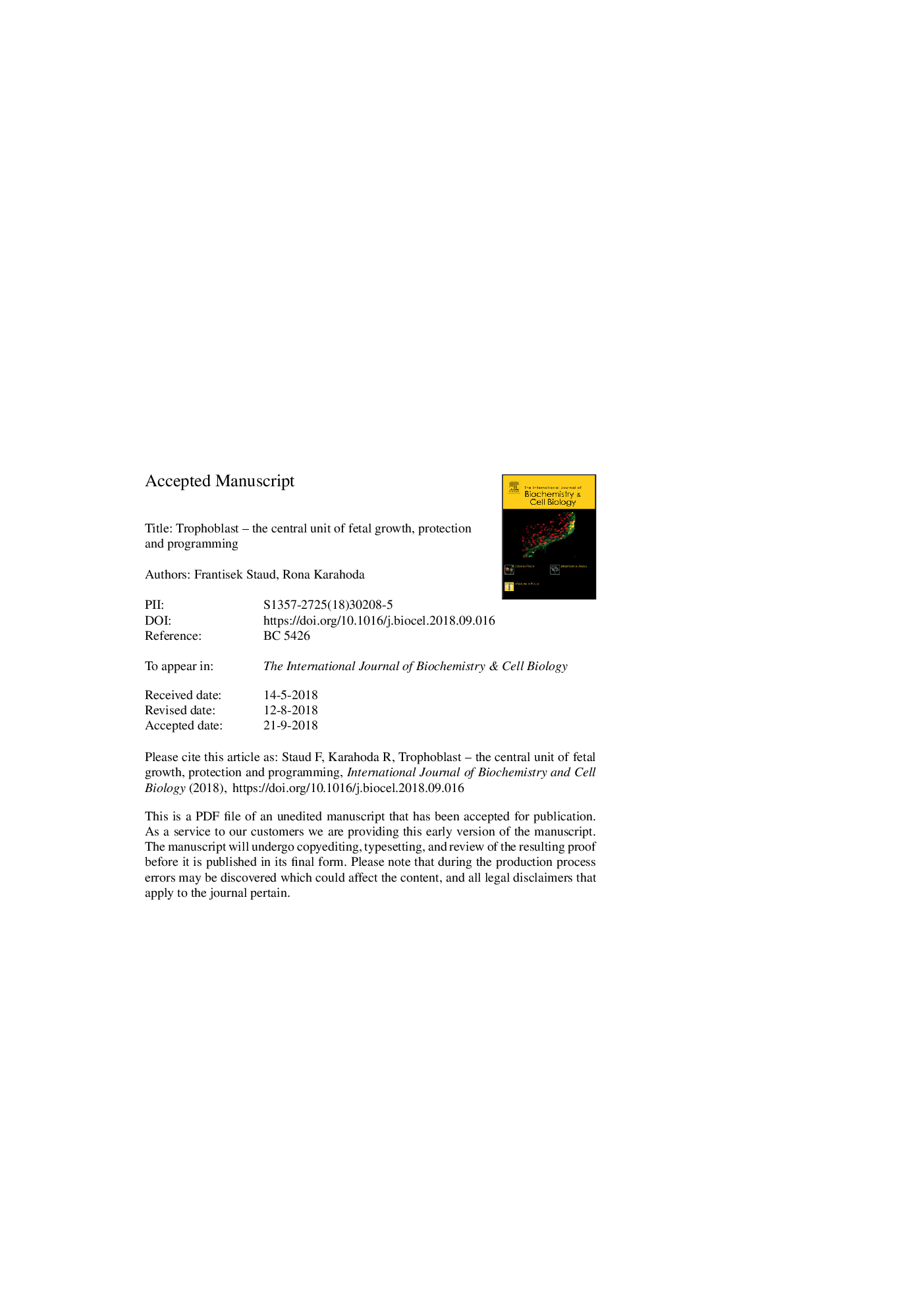| Article ID | Journal | Published Year | Pages | File Type |
|---|---|---|---|---|
| 11015511 | The International Journal of Biochemistry & Cell Biology | 2018 | 23 Pages |
Abstract
The placenta is the first organ to be created during mammalian development. As the main link between the mother and the fetus it has more diverse functions than any other organ, serving as a digestive, excretory, respiratory, endocrine, and immune system. The outer layer of the placenta, the trophoblast, plays a key role in fetal development by orchestrating all these functions. Recent research has associated perturbations of maternal conditions (such as malnutrition, stress or inflammation) with alterations of the trophoblasts' endocrine, transport and metabolic processes. As reviewed here, adaptations to these conditions enable the fetus to survive, but at the cost of permanently changing its physiology and structure. Moreover, these adaptations trigger fetal programming that increases predisposition to various pathological conditions in adult life, typically metabolic, cardiovascular or CNS diseases.
Related Topics
Life Sciences
Biochemistry, Genetics and Molecular Biology
Biochemistry
Authors
Frantisek Staud, Rona Karahoda,
